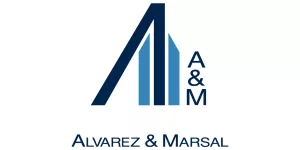Earlier today, the Investment Association published updated Principles of Remuneration and a letter to remuneration committee chairs setting out their members' expectations for the 2023 AGM season.
Our three key takeaways are:
1. Executive Director salary increases
The most prominent issue in the letter to remuneration committee chairs is around salary increases in the current environment:
"For several years, the IA and our members have considered that salary increases for executive directors should, in normal circumstances, be limited to the level of inflation or the salary increases given to all employees. Whilst we believe that this principle still holds true, in a period of significantly higher inflation, we consider that additional restraint should be shown for executive director salary increases. If salary increases [for executive directors] are needed, IA members encourage Committees to consider increases below the rate of salary increases given to all employees. All salary increases, and particularly significant salary increases, will have to be carefully justified in the wider stakeholder context for the company."
The IA remains very focused on the quantum of executive remuneration, particularly in the context of the wider stakeholder experience. They recognise that the rationale for higher than normal salary increases in the wider workforce, necessary to support lower income employees disproportionately affected by the current inflationary environment, may not be as compelling at the executive director level.
They explicitly encourage remuneration committees to consider positioning executive director increases below the all-employee rate. Our research indicates that market practice has been moving towards this "discounted" approach during 2022. While a discounted approach may make sense for this AGM season, it is not a straightforward decision for remuneration committees, who will want to consider a range of factors.
We will be sharing further thoughts in this area in the very near future.
2. "Windfall gains" on vested LTIP awards
As expected, the letter to remuneration committee chairs also makes reference to the issue of "windfall gains" on LTIP awards due to vest in 2023:
"2020 [LTIP] grants were made in the midst of the pandemic following significant share price falls, so a greater number of shares were granted compared to previous years. To ensure that participants do not benefit from being granted significantly more shares, it is important that Remuneration Committees consider if vesting outcomes need to be reduced. Committees should clearly articulate to shareholders how they have considered the impact of any potential windfall gains when determining vesting outcomes and why any reduction is appropriate. If the Committee has decided not to adjust for windfall gains it should explain and disclose its rationale for doing so."
The letter provides a timely reminder that shareholders have not forgotten this issue, which is likely to a relevant consideration for a number of companies who granted LTIP awards in 2020 following a significant share price fall as a result of the initial impact of the COVID pandemic.
While the guidance identifies the underlying issue ("a greater number of shares were granted [in 2020] compared to previous years"), no guidance is provided on what might constitute a "windfall gain". Remuneration committees will need to exercise judgment, and will wish to stay abreast of the latest market developments, in what is likely to be a complex area.
We intend to set out our thoughts on this topic during the coming weeks.
3. Non-executive director (NED) fees
No material changes to the IA's Principles of Remuneration have been made this year. However, we note the following addition to the Principles in respect of non-executive director fees:
"IA members recognise that NED fees have not always reflected the increased complexity and time commitment expected of their role. Given the important oversight role which they play on behalf of the company and their shareholders, NEDs should receive fees that reflect the time commitment of their role on the Board and its sub-committees, and the scope and complexity of their role(s). However, where increases are deemed warranted, the reasons for such should be properly explained."
It is interesting that the IA has explicitly acknowledged that the level of NED fees may not have kept pace with the demands and complexities of the typical NED role. We also note the challenges some companies currently face in recruiting NEDs as they seek to broaden the skillsets and experiences on their boards.
In this context, we may see companies undertake a more comprehensive review of their NED fee structure, and our recent report provides market data in this area. However, it will continue to be important to carefully manage any material changes in NED fees in the context of the wider stakeholder experience, with careful communication required.
The content of this article is intended to provide a general guide to the subject matter. Specialist advice should be sought about your specific circumstances.



